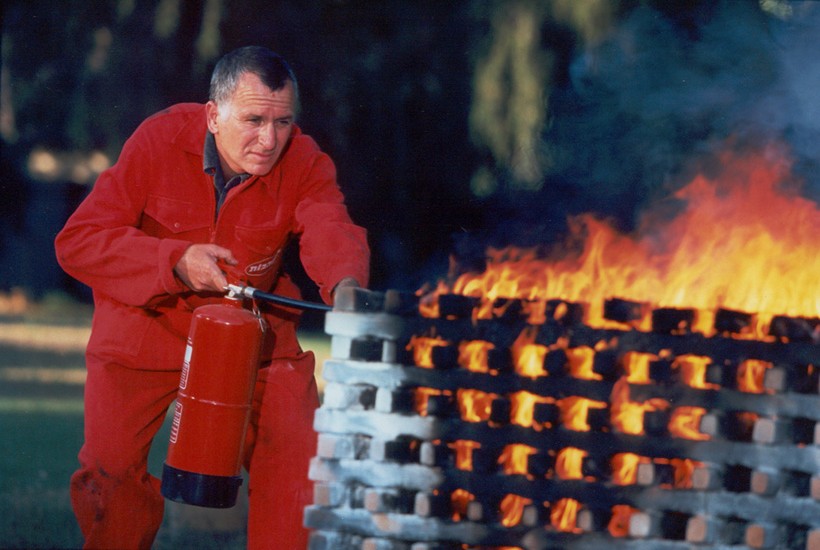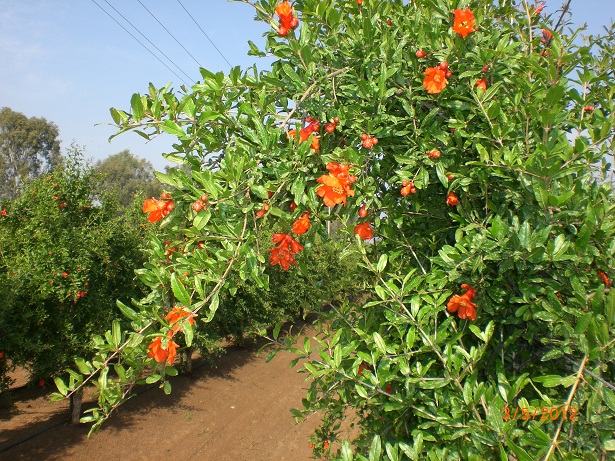Source of Income
The Kibbutz: Sources of income
Industry:

"Lehavot" - factory, developing and producing fire fighting equipment and systems.
The roots of the factory go back to the forties as a workshop, producing various metal products. In the late forties Lehavot began the industrial production of sheet steel furniture. In the fifties it began the production of agricultural back sprayers, made of steel or brass sheets that were of high quality and soon were exported to several African and Asian countries in large quantities. In the late sixties portable fire extinguishers were added to the production line which developed into a wide production basket, enabling Lehavot to become the leader in fire fighting know-how and innovation in Israel.
In the last years Lehavot obtained know-how in the field of fire detection and after development of high-tech fire detectors the company is now able to provide most advanced and reliable comprehensive automatic fire detection and extinguishing systems. Exports included the U.S. Army, which equipped thousands of combat vehicles in Irak and Afghanistan with automatic systems.
The factory employs 65 employees, including 20 Kibbutz members
.Agriculture:

Fish breeding, field crops, fruit plantations, pomegranate plantations, pecan nuts, hen houses, beef cattle herds.
In the past: Vineyard, apple grove, avocado plantations, orange orchard and milk cows.
Tourism:
In the early nineties country 'bed and breakfast' was introduced as a source of income. Old rooms, not in use, were renovated and turned into modern and comfortable guest rooms. With the growing flow of guests and adding more rooms, the resort village "Nofe Habashan" was built, comprising of luxury villas,
.jpg) bungalows, swimming pool, spa, dining room.
bungalows, swimming pool, spa, dining room.Further services to Kibbutz members and residents:
Garage, workshop, damage assessing, general store, gas station, laundry, barber's shop, gym.
Private enterprises:
.JPG)
Spa, alternative medicine, natural cosmetics, art, graphic design, digital media, winery, cheeses, dog houses a.o.
Some members are employed outside the Kibbutz.
By: Shimon Zaiit, business manager, January 2013
Translation: Ben-zion Fainstein
Translatin's Editor: Debbi Rozner
